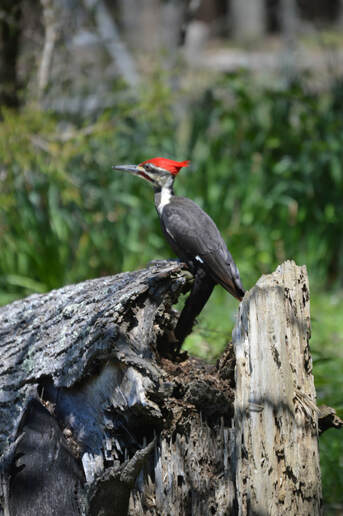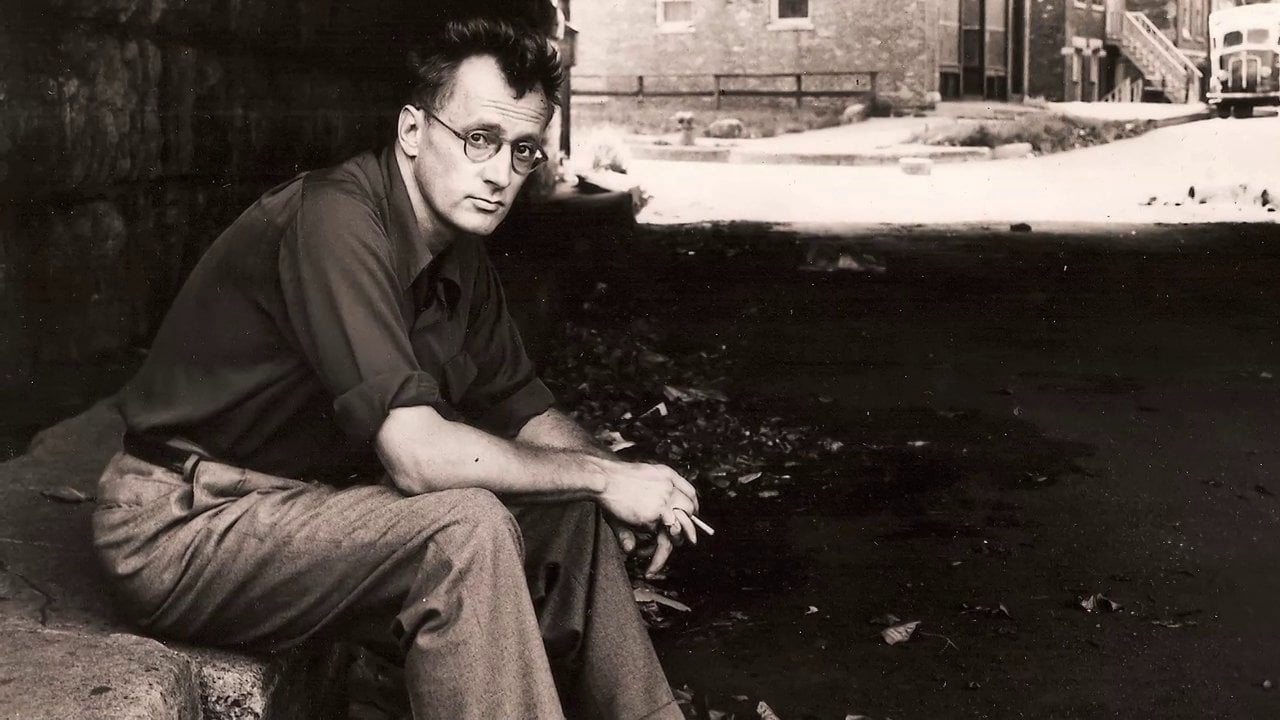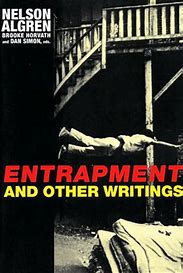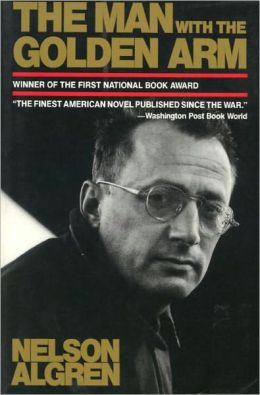 The Pileated Woodpecker, seen here in my neighbor’s backyard, is one species that appears to be adapting to life around humans in our second-growth woodlands. Clear-cutting forests in the 18th and 19th centuries had drastically reduced their numbers. Photo by Rick Showalter. The Pileated Woodpecker, seen here in my neighbor’s backyard, is one species that appears to be adapting to life around humans in our second-growth woodlands. Clear-cutting forests in the 18th and 19th centuries had drastically reduced their numbers. Photo by Rick Showalter. On Monday, May 6, the world learned how the United States intends to monetize climate change for our benefit. While speaking at a meeting of the Arctic Council in Finland, Secretary of State Mike Pompeo never once mentioned the phrase “climate change,” even though the council has recently focused most of its energies on this issue in that increasingly fragile region. Newsweek reports that Pompeo did, however, point out that “Passageways opened up by retreating sea ice could turn the Arctic into a ‘21st century Panama Canal,’ creating new trade routes that could ‘potentially slash the time it takes to travel between Asia and the West by as much as 20 days.’” In other words, as the ice melts and polar bears, seals, and Arctic foxes lose their habitat, humans will have unfettered access to the treasures beneath the ice, which we will then distribute to American households in record time. Oh goody. The AP reported that “[Pompeo] called the Arctic ‘a frontier of opportunity and abundance’ with untouched oil and gas reserves, unmined uranium, raw earth minerals, precious metals and gems.” So for those of you worried that melting polar ice might lead to devastating flooding, punishing storms, loss of habitat and inhabitable land, and the demise of native species, fear not. Speedier trade with China and Russia and access to new oil and gas reserves will offset all of those chimerical problems. What made the Secretary of State’s seemingly careless but certainly intentional comments even more disturbing was the release that same day of the UN’s global assessment report on biodiversity and ecosystems. As Brad Plumer of the New York Times wrote: “The findings were sobering: Millions of acres of wetlands and rain forests are being cleared away. As many as one million plant and animal species are now threatened with extinction because of farming, poaching, pollution, the transport of invasive species and, increasingly, global warming. Almost everywhere you look, nature is vanishing before our eyes.” But, it appears, nobody much cares. Especially not our national leaders. Which is why the hundreds of international experts who collaborated on this report tried to frame it in terms that will help humans—the sentient perpetrators of much of this willful destruction—understand what price they will pay for this assault on the earth’s biodiversity. In brief, our quality of life will suffer as we deal with such inconveniences as costly natural disasters that upend our lives and diminishing foodstuffs we have come to crave. According to Plumer, the report takes pains to explain how “Natural ecosystems…provide invaluable material services to people, from mangrove forests that protect millions from coastal flooding to wetlands that help purify our drinking water to insects that pollinate our fruits and vegetables. The loss of wild plant varieties could make it harder in the future to breed new, hardier crops to cope with threats like increased heat and drought.” If the science behind this catastrophic issue won’t rouse you to take notice, perhaps poetry will. Plumer concludes his article with this metaphor presented by Sandra M. Díaz, a lead author of the report and an ecologist at the National University of Córdoba in Argentina: “Life on Earth is an intricate fabric, and it’s not like we’re looking at it from the outside. We are threads in that fabric. If the fabric is getting holes and fraying, that affects us all.” Mike Pompeo, in his threadbare suit, might want to pull on a plastic rain slicker to protect himself from the big one.
3 Comments
Tim Cooper of Oakdale, Minn., has served as my coach and chief cheerleader as I completed my first novel, Next Train Out. If you would like to submit a blog post for Clearing the Fog, contact us here. I have been fortunate to have observed the writing process Sallie has been engaged in over the last year. To say that it has been an arduous task would be an understatement. But the finished product is a work of art, a work of social relevance, and a work of empathetic exploration that seeks to meld the personal with the historical amid an examination of love and justice. This past week I have been reading the great Chicago writer Nelson Algren’s essay “Do It the Hard Way.” In this piece, Algren explicates what is “true” in all great writing. He urges authors to be true to themselves and never sell out for the sake of commercial expedience. But Algren’s essay is so much more than that. Indeed, it can be read as an exhortation to the writer, the reader—to all of us—to seek out and validate the lives of the marginalized and disenfranchised. To listen carefully, uncritically, to their voices, their cadences, and their language and to then relish its uniqueness. Sallie has two main characters in her novel: her grandfather, Lyons Board, and his fourth wife, Effie Mae. I have told Sallie that I think there is a third major character: language. For, as you will see, Next Train Out is a novel of the vernacular, a novel of linguistic nuance that respects the musings of an Appalachian mother from the coal camps of eastern Kentucky and the sardonic quips of a privileged central Kentucky rake equally. And beautifully. In his essay, Algren asserts that “if you listen long enough, the commonest speech will begin to ring like poetry. [And] poetry it is, the best and the truest: the poetry of the ball-park and the dance hall, of the drugstore at noon, of the pool room and the corner newsstand, of the Montgomery-Ward salesgirls reminiscing on the streetcar or bus.” I don’t believe Sallie is as familiar with Nelson Algren’s work as I am, although we have discussed his writing and his life—and Colin Asher’s new biography of Algren—over the past months. I do know, however, that she has somehow internalized Algren’s dictum. Consider these two examples: Nelson: “I hate t’ see the Spring ‘n Summer come so bad,” she was telling him, “I just don’t seem so good as other people any more. Sometimes I’m that disgusted of myself I think: ‘Just one more dope, that’s you.’ I won’t set up there in that room another Spring alone, thinkin’ stuff like that…I hate t’ see the Spring ‘n Summer come. So bad.” (from "Do It the Hard Way," collected in Entrapment and Other Writings) Sallie: “Me and Lyons, we’ve been together a long time. At least for me it feels like a long time. Seven years. That’s forever after your last husband was kilt within a year of your marryin’ him, and your first husband proved to be a scoundrel after you birthed him four children. Well, maybe that marriage lasted longer than I remember. I just know I was ready to be rid of ‘im. The traitor.” (Effie Mae in Next Train Out) Poetry, indeed. Poetry. When you read Sallie’s novel, plunge into the rhythm, the poetry of her writing. Yes, enjoy it on a macro-level—the story is marvelous, the narrative trajectory compulsively readable. But please, please, engage it on the micro-level, too, the level of the sentence, the word. I think we learn more about characters by the way they speak than we do any other way. Each of Sallie’s characters has a distinct voice that propels us to a greater understanding of who he or she is. This is a novel of social relevance that embraces Algren’s call for justice. It remains only for me to confess something to you: I am a little bit in love with Effie Mae. I think about her often, and I think that I would have been a suitor, too, if the opportunity had presented itself. I know that you, too, will love her, and Lyons, and all of Sallie’s peripheral characters. Read this novel. Love the characters and their voices. But Effie Mae’s mine. |
Details
Archives
June 2023
Categories
All
|





 RSS Feed
RSS Feed